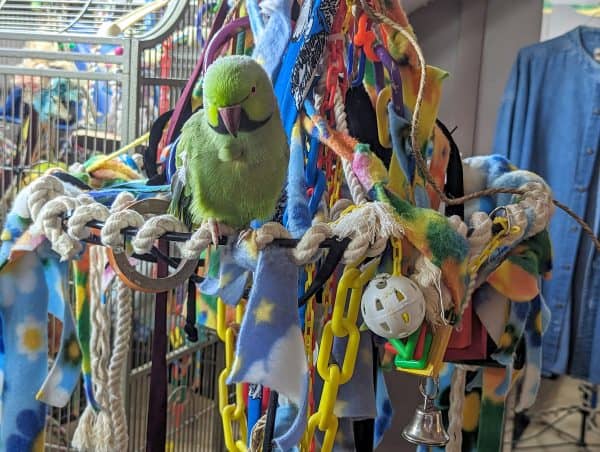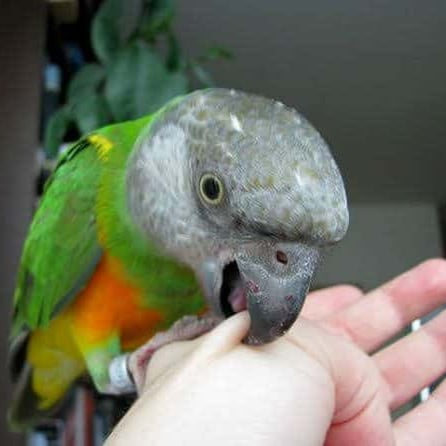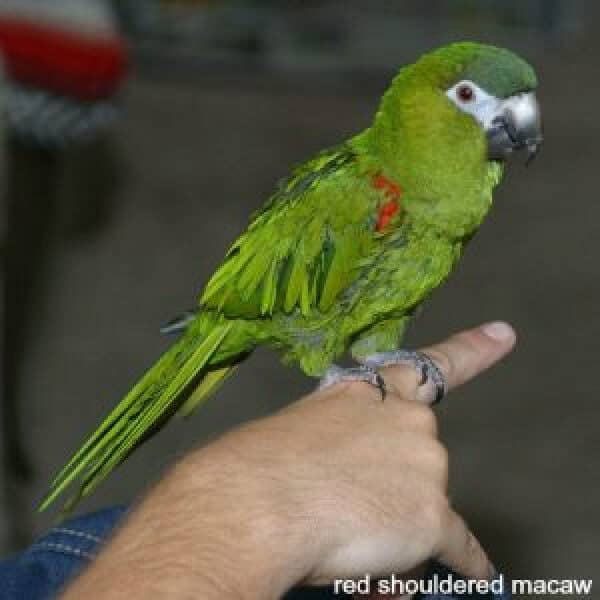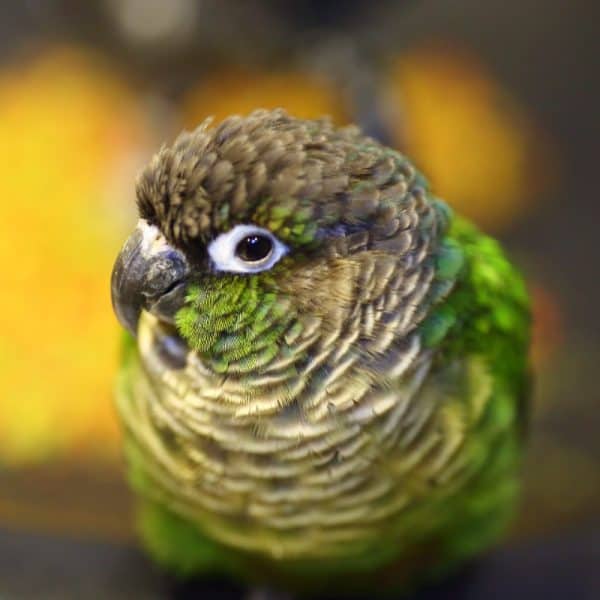Last Updated on by Mitch Rezman
Stopping your parrot from biting requires understanding why the behavior occurs and addressing the root cause.
Parrots bite for many reasons, including fear, territoriality, or frustration.
With patience, training, and consistency, you can reduce and eventually eliminate this behavior. Here’s a step-by-step guide:
1. Understand Why Your Parrot Is Biting
Common reasons for biting:
- Fear or Stress: The bird feels threatened or scared.
- Territorial Behavior: Protecting their cage, perch, or toys.
- Hormonal Changes: Increased aggression during breeding season.
- Overstimulation: Becoming overwhelmed during play or handling.
- Lack of Training: The bird hasn’t been taught appropriate behavior.
2. Avoid Reacting Negatively
- Stay Calm: Do not yell, hit, or shake the bird. Negative reactions can frighten them and damage trust.
- No Drama: Parrots may find strong reactions entertaining and continue the behavior for attention.
3. Build Trust and Strengthen Your Bond
- Start Slow: If your parrot is fearful, spend time near their cage, talking softly, and offering treats.
- Hand-Feeding: Offer treats by hand to build a positive association with you.
- Respect Their Space: Avoid forcing interaction, especially if they show signs of discomfort (e.g., pinning eyes, fluffed feathers).
4. Identify Triggers and Avoid Them
- Observe when and why your parrot bites:
- During cage cleaning? Offer a perch outside the cage to reduce territoriality.
- While being handled? Handle them more gently or shorten interactions.
- Around certain toys? Remove objects that provoke aggression.
5. Train Desired Behaviors
- Use Positive Reinforcement:
- Reward your parrot with treats or praise when they behave well.
- For example, give a treat when they step up calmly without biting.
- “Step Up” Command:
- Teach your parrot to step onto your hand or a perch. Use treats as encouragement and practice regularly.
- Distract with Toys:
- Redirect their attention by offering a toy to chew instead of biting your hand.
6. Respond Appropriately to Bites
- Ignore the Bite: Calmly and gently set the bird down or remove your hand without reacting. This shows that biting doesn’t achieve their goal.
- Use a Perch: If they continue to bite, use a perch to move them instead of your hand.
7. Provide Enrichment
- Prevent Boredom: Ensure your parrot has plenty of toys and activities to keep them mentally and physically stimulated.
- Exercise: Provide out-of-cage time and opportunities to fly or climb.

8. Manage Hormonal Behavior
- Reduce stimuli that trigger hormones, such as:
- Avoid stroking their back, which mimics mating behavior.
- Maintain a consistent light/dark schedule to prevent hormonal imbalances.
9. Be Consistent
- Enforce boundaries consistently. For example, if you don’t want your bird climbing on your shoulder, never allow it, even occasionally.
10. Seek Professional Help if Needed
If biting persists despite your efforts, consult:
- An Avian Veterinarian: To rule out health issues causing discomfort or aggression.
- An Avian Behaviorist: For tailored advice and training techniques.

Key Takeaways
- Understand your parrot’s body language and avoid situations that provoke bites.
- Use positive reinforcement to encourage good behavior.
- Be patient and consistent—behavioral changes take time.
With effort and understanding, your parrot can learn to trust you and reduce biting as a form of communication.
Written by Mitch Rezman and the Windy City Parrot Content Team
Author Profile
Latest entries
 Feeding Exotic BirdsDecember 29, 2025How to Switch or Convert Your Bird From Seeds to Pellets: Real-Life Case Studies and Practical Guidance
Feeding Exotic BirdsDecember 29, 2025How to Switch or Convert Your Bird From Seeds to Pellets: Real-Life Case Studies and Practical Guidance Feeding Exotic BirdsDecember 16, 2025A Practical, Budget-Smart Guide to Feeding Birds Well
Feeding Exotic BirdsDecember 16, 2025A Practical, Budget-Smart Guide to Feeding Birds Well Bird EnviornmentsDecember 7, 2025Understanding Budgie Cage Bar Orientation: Myths, Realities & Practical Solutions for Vertical-Bar Bird Cages
Bird EnviornmentsDecember 7, 2025Understanding Budgie Cage Bar Orientation: Myths, Realities & Practical Solutions for Vertical-Bar Bird Cages Feeding Exotic BirdsDecember 5, 2025How Dr. T.J. Lafeber Rewrote the Future of Pet Bird Nutrition
Feeding Exotic BirdsDecember 5, 2025How Dr. T.J. Lafeber Rewrote the Future of Pet Bird Nutrition



